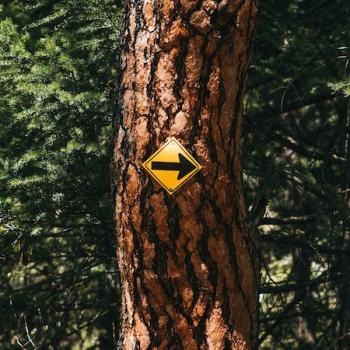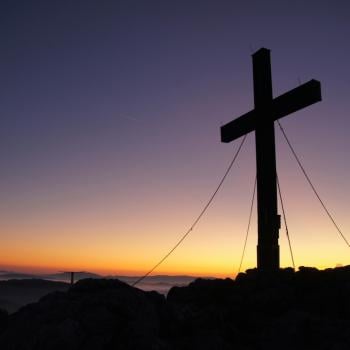Only in our time, thanks to the advent of a feminist Judaism, which is to say an inclusive Judaism, has it become possible to imagine the entire community, regardless of age or sex or previous Jewish literacy, as a nation of students and teachers. This undercuts the unexamined notion -- the fantasy, really -- that the Jews of yore were more learned and thus more pious and authentic than we are today. The radical democratization of Jewish learning, with the possibility of universal life-long learning, is one of the fruits of women's growing participation and leadership in university settings as well as in seminaries and yeshivas.
Hooray for us! But now that we have attained this level of learning and power (with miles to go, I know, I know), it's time to own up to the fact that we are not going to find proof texts for all of our insights and inventions. It's time to be honest that we are creating the Miriam we need -- musician, performance artist, prophet -- that we give her a timbrel and a place at the Seder and put new songs in her mouth. We give her words that speak to our spiritual quests and reflect contemporary models of female leadership. This is perfectly kosher. It's been done by many men before us. It is the juicy, growing part of our tree of life, which kept us from atrophy and death.
We must embrace the fact that we are sanctifying what was not viewed as sacred in the past: the stories of our lives, the power and wisdom of our grandmothers, the sacrifice and triumph of the counter-histories, the counter-narratives, the counter-theologies, of the Jewish past.
Transforming the marginal into the normative is the business of the arts. The mandate for hiddur mitzvah -- the beautification of Jewish life -- has never been more pressing; for starters, our dramaturgy -- the aesthetic of prayer -- is in need of a serious tune-up, from liturgy to music to movement.
Art and culture -- homely as cooking, lofty as poetry, challenging as video installation -- are going to provide new vocabularies and new avenues of authentic Jewish expression in every sphere, from Torah study to ritual to rebuilding the world. And women will be in the vanguard.
We are at the end of one beginning; we are on the verge of the next.
Mazal tov to all of the contributors to this fine collection. Mazal tov to Rabbi Goldstein for her passion to make it happen. Mazal tov to us and to our daughters and our sons. There has never been a better time to be a Jew.
Can I hear a shehechiyanu?
(c) Anita Diamant 2009
Published in New Jewish Feminism: Probing the Past, Forging the Future, edited by Rabbi Elyse Goldstein (c) 2009 Jewish Lights Publishing
Anita Diamant has written twelve books, including the international bestseller, The Red Tent. Her other novels include Good Harbor, The Last Days of Dogtown, and Day after Night, which tells the story of four young Jewish women Holocaust survivors who make their way to the land of Israel in 1945; Publisher's Weekly calls it "compulsively readable." Diamant is a lecturer, award-winning journalist, and the author of six non-fiction guides to contemporary Jewish life, beginning with The New Jewish Wedding, and a collection of personal essays, Pitching My Tent: On Marriage, Motherhood, Friendship and Other Leaps of Faith. Diamant is also the founder and president of Mayyim Hayyim, Living Waters Community Mikveh, and the Paula J. Brody Family Education Center, in Newton, Massachusetts. Visit her site and blog at www.anitadiamant.com.




